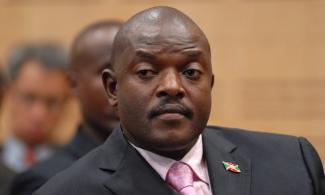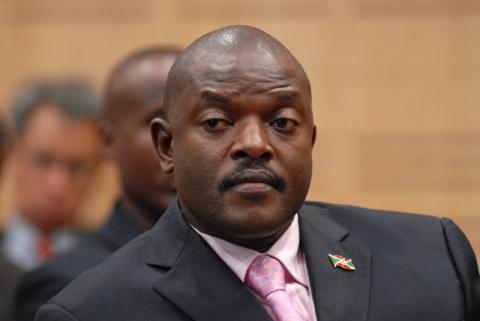
Seven more people were killed in the latest wave of political violence embroiling the East African nation of Burundi.
Seven more people were killed in the latest wave of political violence embroiling the East African nation of Burundi.

Violent protests swept the country following the unconstitutional third term presidential bid by President Pierre Nkurunziza in April. In 2005, the country emerged from a 12-year civil war that left more than 300,000 dead. The war began in 1993 when Tutsi extremists assassinated Melchior Ndadaye the first Hutu to be elected President of Burundi. Within a year 100,000 people were killed, according to some estimates.
Burundi, much like its neighbor Rwanda, is a country divided into three primary ethnic groups the Tutsi, Hutu, and Twa. The Hutu make up roughly 90% of the population, the Tutsi make up 10%, with the Twa making up around 1%.
At the war’s conclusion, the Arusha Peace Accords were signed between the Tutsi and Hutu rebel groups. In addition, a new Constitution was ratified.
Military officials attempted to overthrow President Nkurunziza in May. The coup failed and President Nkurunziza went on to win the controversial 2015 Burundian Elections in July. Since July, the number of deaths from violence has risen to over 200.
Several media sources have reported numerous political assassinations, a few of these murders are believed to be ethnically motivated. Even more disturbing, is the rise of ethnic militias with the pro-government Hutu militia Imbonerakaure being the most notorious. Reportedly the Imbonerakaure are conducting a campaign of intimidation aimed exclusively at the Tutsi minority.
Speaking to SaharaReporters Jennifer Cooke, the Director of the Africa Program at the Center for Strategic Studies (CSIS), pushed back against the narrative of the ethnic nature of the violence.
“The opposition to President Nkurunziza cuts across ethnic lines. Most of it [opposition to President Nkurunziza] has to do with the belief that President Nkurunziza won his reelection illegally and that he should not have received a third term,” she told SaharaReporters.
In the midst of reports of increasing political and ethnic violence, several international observers have warned that the country may be on the brink of another civil war. Adam Dieng, the Special Advisor to the United Nations (UN) on the Prevention of Genocide, recently cautioned that while genocide may not be imminent, “there is a serious risk that if we do not stop the ongoing violence, this may end with a civil war and following a civil war everything is possible."
Writing for the newspaper the Conversation, Patrick Muthengi Maluki, a Lecturer at the University of Nairobi, called for the African Union (AU) and the UN to create a political solution between the opposition and President Nkurunziza.
Mrs. Cooke also stressed the need for the AU to lead the peace efforts. She noted that since the regional leaders had largely failed to address the conflict brewing in Burundi, it fell to the AU to bring all of the interested parties to the negotiating table.
“If the AU leads the peacekeeping effort they will be able to bring further international attention to the crisis. In addition, calls for international cooperation by the AU will be better received by nations such as China and Russia then a call for peace from the US,” Mrs. Cooke explained.